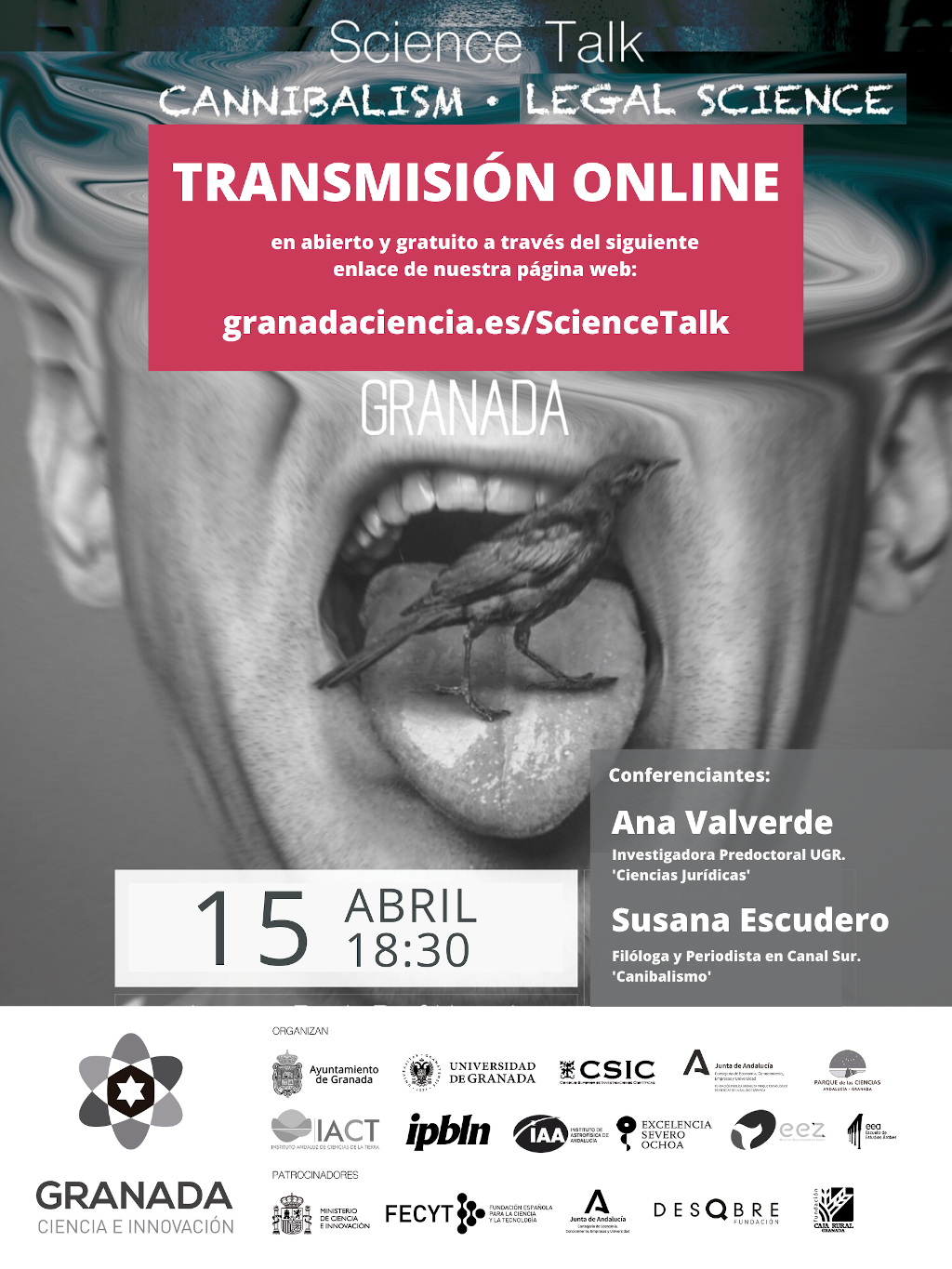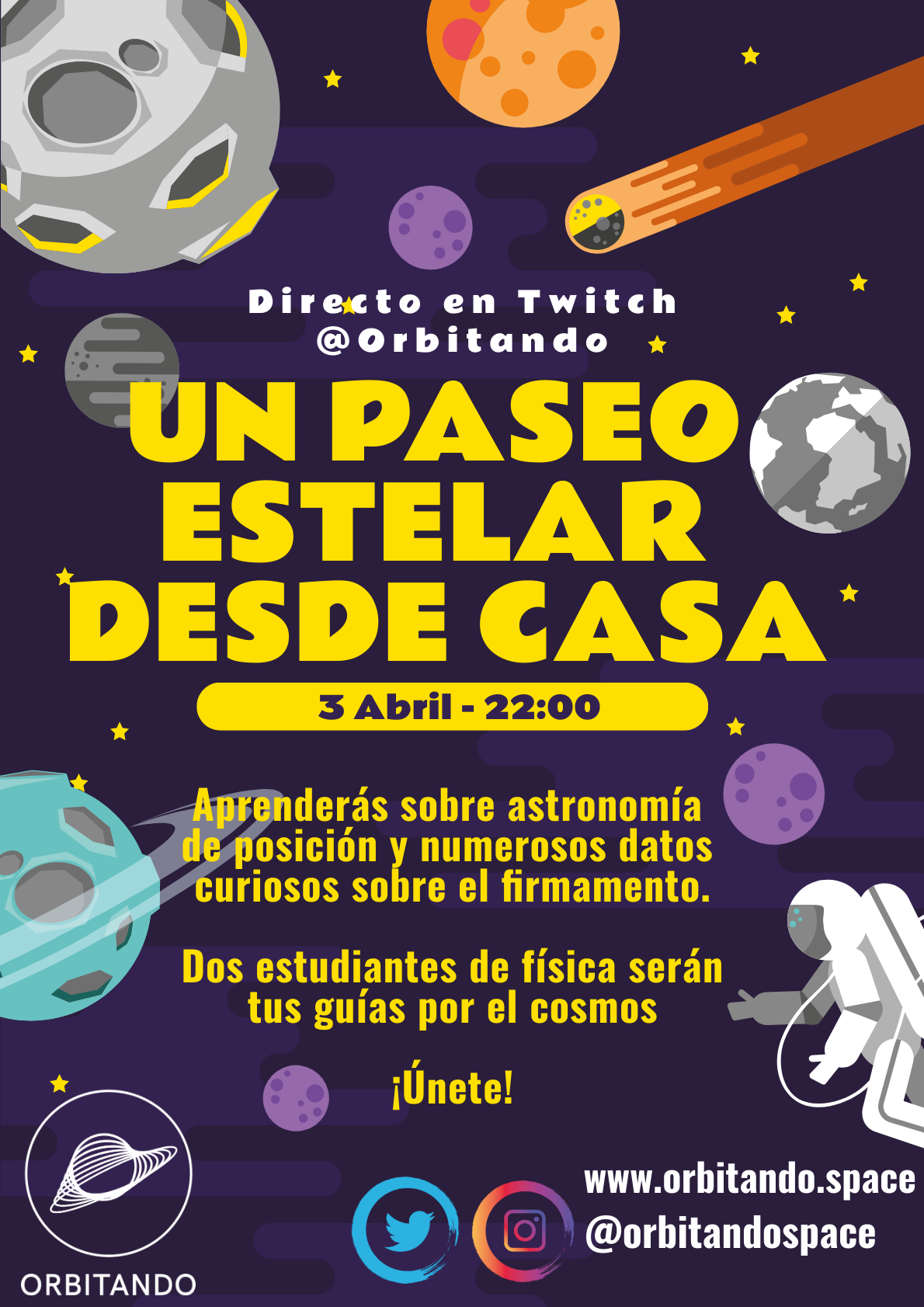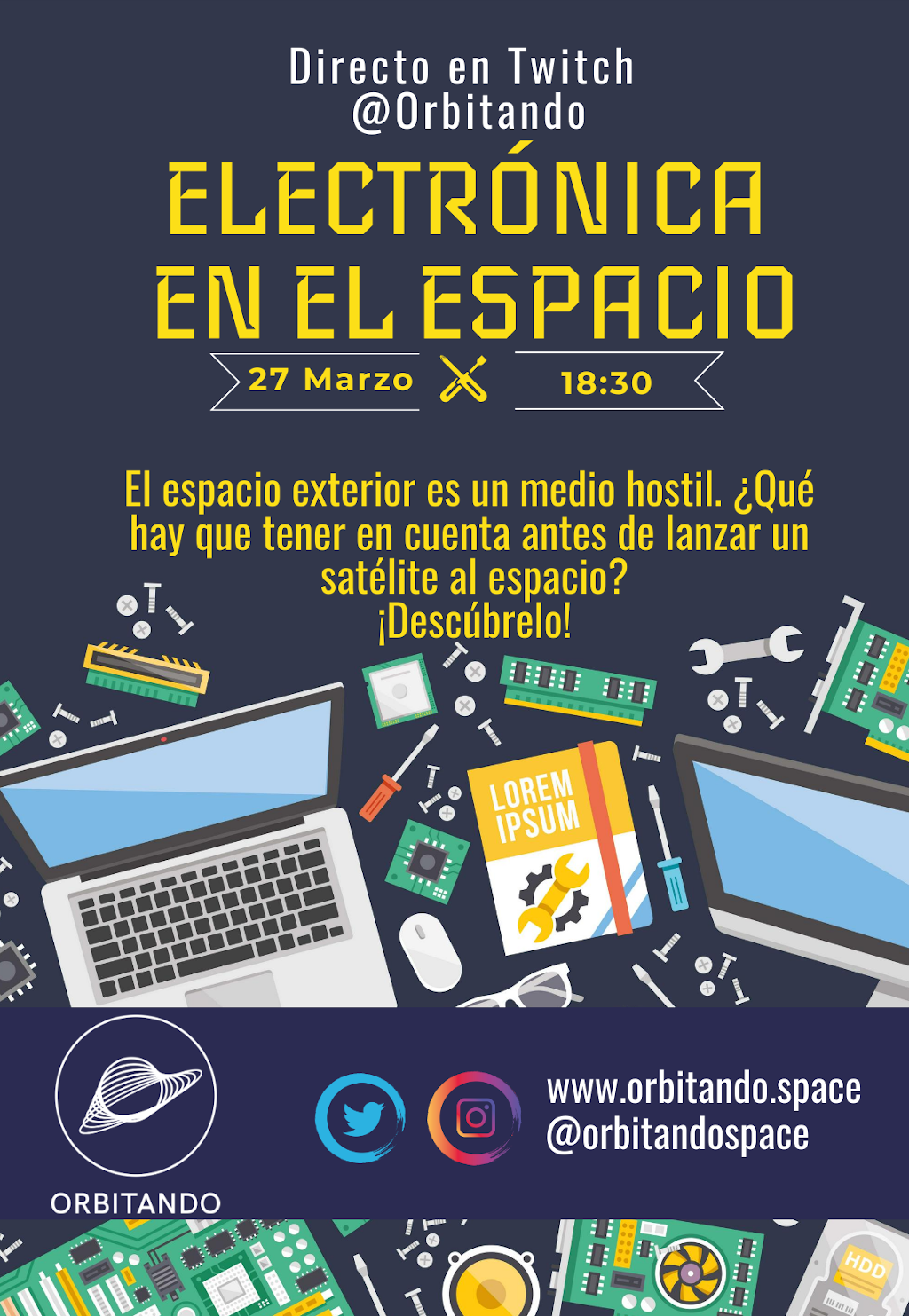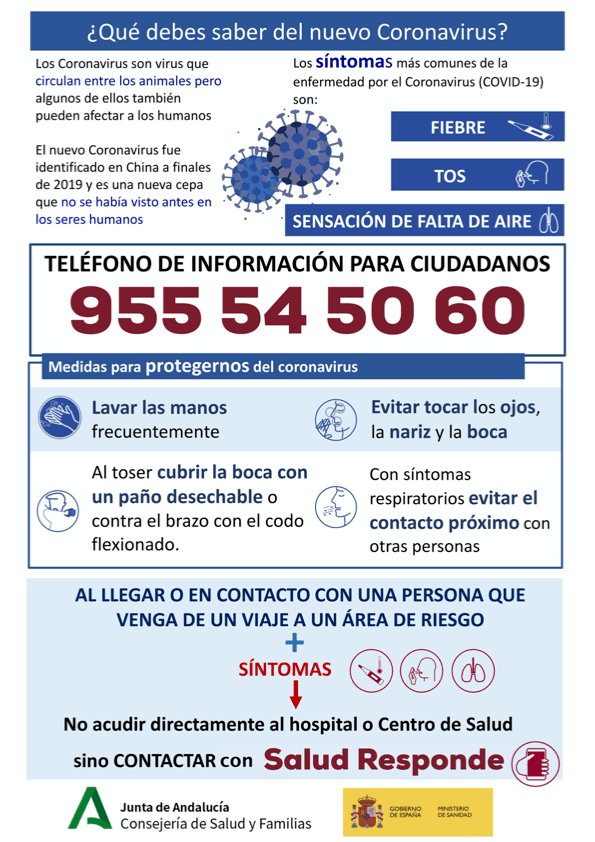Noticias
Fecha: 15 de abril de 2020.
Hora: 18:30.
Lugar: Transmisión online en abierto.
Conferenciantes: Ana Valverde y Susana Escudero.
La Delegación del Gobierno en Andalucía ha informado a las universidades que, ante la terminación de las clases presenciales en las universidades andaluzas, se han establecido por las Fuerzas y Cuerpos de Seguridad los siguientes calendarios para los desplazamientos de regreso al domicilio familiar de los estudiantes:
- Con vehículo propio, durante los días 8/9 de abril. Y los días 10/11 abril si el destino está fuera de la Comunidad Autónoma de Andalucía.
- Uso de transporte público, durante los días 8/9 abril. Y los días 8/9/10 abril si el destino está fuera de la Comunidad Autónoma de Andalucía.
- Si requieren apoyo familiar, durante los días 10/11 de abril. Y el 13 de abril si el destino está fuera de la Comuidad Autónoma de Andalucía. Deberá atenderse la Orden TMA 278/2020, de 24 de marzo, Disposición Adicional 1ª, sobre número de ocupantes del vehículo, en caso de una misma unidad familiar: una persona por cada fila de asientos, manteniéndose la mayor distancia posible entre los ocupantes.
El motivo del desplazamiento deberá acreditarse mediante los documentos oficiales oportunos (tarjeta de estudiante universitario, DNI o cualquier otro documento que acredite la condición de estudiante universitario fuera de su domicilio familiar)
En cuanto a los estudiantes que quieran desplazarse desde su domicilio familiar al lugar de residencia durante el curso académico para recoger los enseres personales o rescindir los contratos de alquiler, aun entendiendo las cargas económicas que supone y el problema humano, la Delegación del Gobierno considera que no procede acceder a lo solicitado en ningún caso al no encontrar encuadre en ninguno de las excepciones recogidas en el Real Decreto 463/2020 que permiten la circulación de las personas, máxime en el período de máxima reducción de la movilidad en que nos encontramos y por tanto dichos movimientos no serán autorizados hasta que se relajen las medidas establecidas.
Como ya se avisó en comunicados anteriores los estudiantes de programas de movilidad internacional que deseen trasladarse a sus países de origen o de residencia permanente deben contactar con su embajada o consulado, y en caso de dificultad, con el Vicerrectorado de Internacionalización ()
Estimados/as estudiantes:
La Universidad de Granada está haciendo un gran esfuerzo para poder ayudar a todos sus estudiantes que tengan dificultades para seguir la docencia no presencial en casa, como carecer de ordenador o de una conexión a internet. Para ello se ha habilitado un formulario que debe ser rellenado por aquellos estudiantes que necesiten este servicio excepcional.
Desde el Equipo Decanal seguimos en contacto con vosotros y esperamos que estéis muy bien de salud y con muchos ánimos.
Equipo Decanal
La matrícula permanecerá abierta hasta el 11 de mayo (podrás acceder al curso a partir del 6 de abril).
El curso durará 80 horas. Donde 60 horas serán para la consulta del material y el trabajo autónomo por parte del alumno que realizará a través de la plataforma online de Darwin Eventur, y las otras 20 horas están englobadas en un PROYECTO FINAL que tendrá que hacer el alumno y presentarlo en el tiempo establecido (hasta el 6 de julio de 2020). Las instrucciones específicas para la realización de dicho trabajo están indicadas dentro de la plataforma.
Precio: 45 euros (40 euros para socios de Darwin Eventur). 40 dólares para residentes en México, Centro y Sudamérica (35 dólares para socios).
El curso será PRÁCTICO en su mayoría, intercalado de explicaciones teóricas (incluyendo material en formato PDF, vídeos explicativos y enlaces de interés) sobre las materias necesarias para que los participantes puedan completar sin problemas el curso y además, se intentará que sea lo más interactivo posible. Se realizará en su totalidad en nuestra aula virtual con la aplicación de SIG de Software Libre y de Código Abierto QGIS.
Fecha: 03/04/2020.
Hora: 22:00.
¡Orbitando nos trae otro directo en twitch! Levantando las manos.
Esta vez se trata de un paseo por nuestro cielo: Estrella brillante, que tendrá lugar este viernes.
Únete para conocer mejor nuestro cielo: sus constelaciones, posiciones de astros, mitología ... ¡Y todo desde el sofá de tu casa!
Fecha: viernes, 27 de marzo de 2020.
Hora: 18:30h.
Desde Orbitando realizarán un directo en Twitch en el que se hablará de los desafíos tecnológicos de la electrónica espacial y se comentarán las últimas noticias espaciales.
Fecha: hasta el 12/04/2020.
¡Desde Orbitando vuelven a la carga! ¡Esta vez con un concurso de microrrelatos que ya está activo en Twitter!
Escribe un microrrelato en un tweet con temática espacial o futurística, tendrá que incluir el hashtag #MicrorrelatoOrbitando.
¡El microrrelato más retuiteado conseguirá una camiseta de Orbitando!
Además, se hará una selección de tweets para un libro recopilatorio que se está preparando.
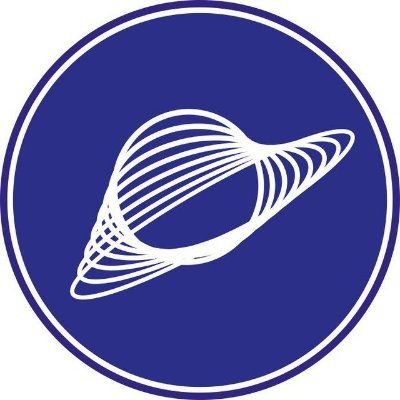
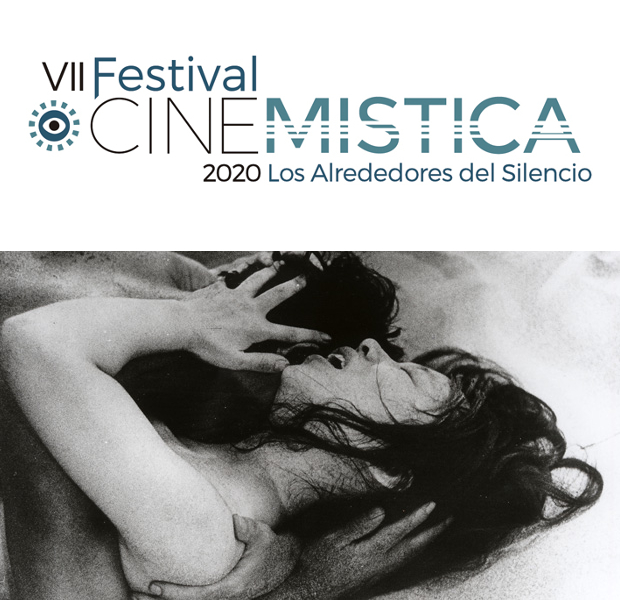
Desde la Asociación Guadalcine, organizadora de Festival Cinemística con el que colabora habitualmente la facultad, nos proponen un cine-fórum y visionado gratuito sobre el film "La Mujer de la Arena" de Hiroshi Teshigahara (Japón 1964), una obra maestra de la que fue llamada Nueva Ola de Cine Japonés, cuya temática tiene absolutamente que ver con los días de confinamiento en casa que estamos viviendo. El cineasta Manuel Polls Pelaz coordinará los chats de opinión en un foro crítico y abierto, establecido al efecto.
Aquí podéis acceder al enlace de visionado y al foro.
¡Animaros a participar, es una obra mítica, en V.O.S.E., irrepetible, apasionante, con un guión existencialista y una estética sin igual!
De acuerdo con las instrucciones remitidas por la Gerencia de la Universidad de Granada con fecha 15 de marzo de 2020, en el marco del comunicado de los Rectores y Rectoras de las Universidades Públicas de Andalucía, ampliando las medidas adoptadas con motivo del COVID-19, y al objeto de poder establecer una adecuada respuesta a esta situación en lo que se refiere tanto a la gestión del cierre de los Centros, Servicios y Unidades de la Universidad de Granada, como a la prestación de servicios administrativos de manera no presencial, la administración de la Facultad de Ciencias con fecha 16 de marzo de 2020, establece el Plan de Acción.
Atención no presencial a usuarios.
La suspensión de la actividad administrativa presencial implica que la relación con la administración de la Universidad de Granada será exclusivamente vía electrónica utilizando para ello:
- Los procedimientos electrónicos específicos disponibles en la sede electrónica de la Universidad de Granada
- En defecto de procedimientos electrónicos específicos, se utilizará la solicitud genérica
- A estos efectos, se recuerda que todos los plazos administrativos han quedado suspendidos (Disposición adicional tercera del Real Decreto 463/2020, de 14 de marzo).
- Quedan suspendidas las citas obtenidas a través de la aplicación CIGES.
- El personal de administración y servicios atenderá las tareas esenciales de su puesto, siempre que sea posible, a través de la modalidad de teletrabajo mediante la conexión habilitada por la Universidad de Granada.
- Se facilitará atención no presencial por correo electrónico, preferentemente a través de las cuentas de correo institucionales:
- Información:
- Registro electrónico:
- Relaciones Internacionales:
- Gestión económica Facultad Ciencias Facturas:
- Gestión económica Unidad de Atención Departamental:
- Decanato:
- Gestión de Departamentos y personal técnico de laboratorio: Las direcciones de correo electrónico institucionales de departamentos o personales del personal de administración se podrán consultar en la página web de la Facultad y/o de cada Departamento.
Tras la declaración del estado de alarma por el Gobierno de España, en virtud del Real Decreto 463/2020 de 14 de marzo, y en desarrollo de las medidas dictadas en la Orden de 13 de marzo de la Consejería de Salud y Familias, por la que se adoptan medidas preventivas de salud pública en la Comunidad Autónoma de Andalucía como consecuencia de la situación y evolución del coronavirus (COVID-19), los Rectores y Rectoras de las Universidades Públicas de Andalucía, en reunión celebrada el 15 de marzo de 2020, han decidido acordar un conjunto de directrices generales y de carácter temporal, para garantizar, como cuestión prioritaria, la protección de la salud del personal universitario, al tiempo que dar continuidad a los servicios administrativos imprescindibles, durante el tiempo que permanezcamos en esta situación excepcional con motivo del COVID-19.
Durante este periodo, que podrá ser prorrogado de conformidad con las medidas que se vayan adoptando por el Gobierno de España y/o por el Gobierno de la Comunidad Autónoma de Andalucía, todos los centros, servicios y unidades de las Universidades Andaluzas permanecerán cerrados al público y se procurará minimizar, todo lo posible, la presencia de la comunidad universitaria en nuestras instalaciones.
El objetivo de estas medidas es mantener, de la mejor forma posible, la actividad universitaria bajo los principios de lealtad institucional al Gobierno de la Nación y al Gobierno de la Comunidad Autónoma de Andalucía y garantizar, como principio básico rector, la preservación de la salud de nuestra comunidad universitaria y la colaboración en la contención colectiva del contagio.
Medidas de carácter general:
- Mantener la suspensión de todas las actividades docentes presenciales (teóricas y prácticas), desde el día 16 de marzo hasta el día 30 de marzo, fecha en la que se evaluará nuevamente la situación.
- Mantener la suspensión de todos los cursos y actividades programadas en los espacios de las universidades.
- Mantener la suspensión de todas las actividades culturales.
- Mantener la suspensión de todas las actividades asociadas a prácticas curriculares y extracurriculares desarrolladas dentro de las instalaciones universitarias. Las prácticas curriculares y extracurriculares que se lleven a cabo fuera de las instalaciones universitarias se podrán mantener en función de la entidad externa y siempre que se puedan desarrollar por medios telemáticos.
- Mantener la suspensión de las salidas de campo.
- Mantener la suspensión en la expedición de comisiones de servicio y desplazamientos fuera de las universidades por motivos laborales, incluidas las comisiones para participar en tribunales de oposiciones, concursos y defensas de tesis doctorales.
- Mantener el cierre de las Bibliotecas, salas de estudio e instalaciones deportivas.
- Proceder al cierre de comedores, cafeterías y servicios de copistería. En el caso de los servicios de residencias universitarias y colegios mayores, donde continúen alojados estudiantes, estos solo prestarán su servicio a los mismos y con total respeto a las medidas preventivas en materia de salud.
Medidas dirigidas al Personal de Administración y Servicios:
- Disponer que las presentes medidas se establezcan sin perjuicio de la sujeción de todo el personal a las necesidades del servicio y de su disponibilidad, cuando se les requiera, para la prestación del mismo.
- Con la finalidad de garantizar, en la medida de lo posible, la continuidad de los servicios en esta situación, el Personal de Administración y Servicios desarrollará su actividad mediante medios telemáticos, conforme a los requisitos y condiciones que se establecerán por las Gerencias y siempre atendiendo a las tareas que sean asignadas por los responsables de los servicios.
- Los supuestos extraordinarios y justificados en los que no sea posible la realización de la jornada mediante medios telemáticos y en los que no sea necesaria la asistencia presencial de los empleados tendrán la consideración de ausencia justificada, sin que comporten la pérdida de derechos.
- La Gerencia de cada Universidad determinará y comunicará, en un plazo breve, la planificación de los servicios mínimos que será necesario prestar de forma presencial, incluidos los correspondientes a las contratas externas.
- En el caso de prestación de servicios presenciales, se velará, en todo caso, por favorecer la conciliación de la vida laboral y familiar y garantizar la seguridad sanitaria en los espacios de trabajo.
- En la determinación de la persona o personas que deban trabajar presencialmente, se dará prioridad al personal que se ofrezca voluntario. En caso de que no se contase, por esta vía, con los efectivos necesarios para cumplir con los programas de trabajo, se aplicarán los criterios que las Gerencias determinen al efecto.
- Tanto en la actividad desarrollada de forma presencial como en la desarrollada a través de medios telemáticos, de forma temporal y durante el periodo en que se mantenga esta situación excepcional, se podrán reasignar tareas por las jefaturas de servicio, responsables de unidades o equipos de trabajo, en atención a las circunstancias que concurran.
- Las Universidades facilitarán, en la medida de lo posible, los medios técnicos necesarios para el efectivo desempeño de la actividad profesional mediante medios telemáticos.
- Todo el personal deberá estar en situación de disponibilidad y consultar con regularidad diaria la información que la Universidad pueda enviar a través de los medios establecidos al efecto (principalmente, el correo electrónico corporativo y la página web de la institución).
Medidas dirigidas al Personal Docente e Investigador y al Personal Investigador:
- Todo el PDI y PI continuará con su actividad docente y de gestión de manera no presencial, y con su actividad investigadora también de forma no presencial preferentemente.
- Cuando ello no sea posible y con carácter excepcional, el PDI y PI podrá acceder a las instalaciones universitarias, siempre de forma voluntaria, y siguiendo las pautas higiénicas y sanitarias marcadas por las autoridades para evitar el contagio y la propagación del COVID-19. En estos casos, el acceso a las instalaciones deberá realizarse acreditando la pertenencia a la Universidad o mediante las tarjetas universitarias.
- La actividad docente no presencial se realizará a través de las distintas plataformas y medios autorizados por las Universidades.
- También se mantendrán las tutorías, que se realizarán de forma virtual a través de las mencionadas plataformas docentes, del correo electrónico o de cualquier otro sistema no presencial que sea autorizado por la Universidad.
- Atendiendo a las excepcionales circunstancias en las que nos encontramos, se ruega al profesorado la mayor flexibilidad posible en el ejercicio de la actividad docente y evaluadora, en atención a reducir los perjuicios académicos que de por sí esta situación comporta para el estudiantado.
- Aquellas actividades necesarias para la programación del curso próximo, así como cualesquiera otras que se consideren imprescindibles para el correcto funcionamiento de la institución, se realizarán mediante reuniones virtuales.
Medidas y recomendaciones dirigidas al estudiantado:
- Disponer que el estudiantado se abstenga de acudir a las instalaciones y espacios universitarios, permaneciendo en sus domicilios y lugares de residencia.
- Procurar el máximo aprovechamiento académico de este período excepcional de cuarentena, puesto que, a pesar de las medidas adoptadas, el curso oficialmente continúa.
- Prestar atención a cuántas comunicaciones informativas y orientativas se les hagan llegar por parte del Equipo de Gobierno, el Personal de Administración y Servicios y el Personal Docente e Investigador, con especial atención a los mensajes de las webs oficiales y el correo electrónico corporativo.
Las Universidades Públicas Andaluzas garantizan que, a pesar de la excepcionalidad de esta situación, velarán por la salvaguarda de los derechos del estudiantado y por la mejor solución posible de las disfunciones académicas que puedan generarse.
Desde el convencimiento de que sabremos afrontar con solvencia los enormes retos que esta situación nos presenta y de que nuestras instituciones podrán resultar, incluso, fortalecidas como comunidad, los rectores y las rectoras ruegan a toda la comunidad universitaria actuar con responsabilidad y compromiso institucional, cumpliendo las normas derivadas del actual estado de alarma, en aras de su propio bien y el del conjunto de nuestra sociedad.




